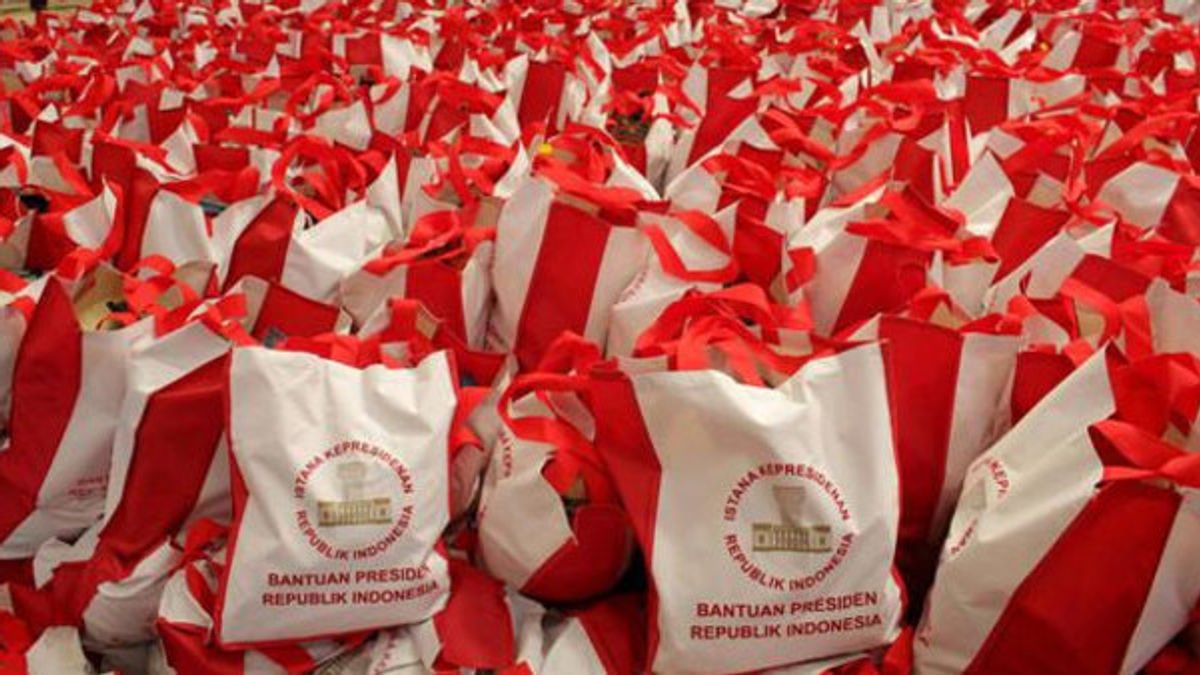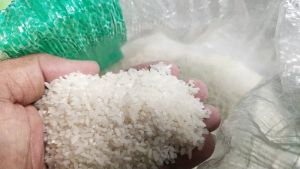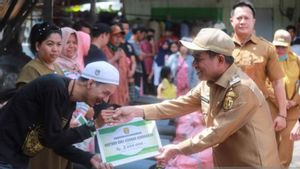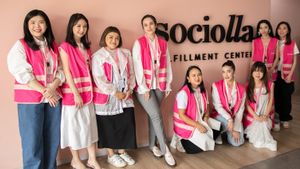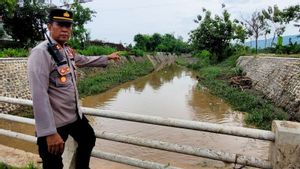JAKARTA - Segara Research Institute Executive Director Piter Abdullah said that one of the keys in eradicating extreme poverty to zero percent in Indonesia, namely to make the distribution of social assistance to the community on target.
"The name social assistance must be effective in dealing with extreme poverty. But the key is to be effective if the program is right on target, right on purpose," Piter said as quoted by Antara, Sunday, August 6.
Piter said that the extreme poor are residents who really cannot meet basic needs, either clothing, food and shelter or shelter.
According to Piter, in Indonesia, especially in DKI Jakarta, there should be no more residents who fall into the category of extreme poor because the government currently has a lot of cash social assistance or in the form of basic necessities.
He said, if currently there are still residents who fall into the category of extreme poverty, then there is an error in the system of distributing social assistance that is not on target. Or there is no information that reaches the government to handle this.
"If there is still extreme poverty, it means that there are problems in the distribution of social assistance. And they should be the main focus to get social assistance," said Piter.
Piter added that the government, which targets extreme poverty to reach zero percent by 2024, is realistic because the government provides a lot of social assistance and in general people have a social spirit.
"People don't need a lot of programs, but they need a system that makes the government know exactly who and where the poor need help," Piter said.
Previously, Deputy for Coordination for Social Welfare Improvement at the Coordinating Ministry for Human Development and Culture, Nunung Nuryantono, said that based on the National Socio-Economic Survey (Susenas), the extreme poverty rate as of September 2022 was 1.74 percent.
The same survey in March 2023, extreme poverty fell to 1.12 percent.
According to him a, there are three major strategies in reducing extreme poverty. Namely reducing expenses, one of which is carried out through the Family Hope Program (PKH) and Direct Cash Assistance (BLT).
In addition, increasing public income and reducing poverty bags by improving infrastructure and sanitation.
Head of the DKI Jakarta Social Service, Premi Lasari, said that one of the strategies in overcoming extreme poverty in DKI Jakarta is to provide social assistance to reduce the burden on the community.
The social protection is in accordance with the mandate of Governor's Instruction Number 34 of 2022 concerning the Acceleration of the Elimination of Extreme Poverty in Jakarta.
The Social Service is tasked with implementing interventions to accelerate extreme poverty on target through this policy strategy, including reducing the burden on the community and increasing people's income.
Premi said that his party had also matched the Integrated Social Welfare Data (DTKS) as stipulated by the Ministry of Social Affairs (Kemensos), which was matched with data on the Order to Accelerate the Elimination of Extreme Poverty (P3KE) sourced from the P3KE task force, namely the Coordinating Ministry for PMK, BPS and BKKBN.
Funding of population data as well as asset and tax ownership data from DTKS and social assistance recipients will continue to be carried out together with the Population and Civil Registration Office (Disdukcapil) and the Regional Revenue Agency (Bapenda), as an effort to update data so that the social assistance program in Jakarta is right on target.
Separately, Dewi Murniati (41), a resident of Kenari Village, Senen District, Central Jakarta, said that as one of the recipients of PKH social assistance, she felt that the social assistance was greatly helped by meeting her family's economic needs.
Dewi has been registered as a recipient of PKH social assistance since 2014. At that time, she first received cash assistance of Rp. 120 thousand and finally received phase two PKH assistance in April 2023 of Rp. 500 thousand.
Each disbursement of the PKH program, Dewi set aside some of the funds received for the development of her business capital. He opened a business selling boiled noodles, snacks and a number of children's drinks and received orders to make yellow rice at his home.
Then, in November 2022, Dewi was registered as the recipient of the Nusantara Economic Heroes Program (PENA) from the Ministry of Social Affairs. Dewi was then assessed by a companion from the ranks of the Ministry of Social Affairs to be graded for the program.
When he was gradually transferred to the program, Dewi said that at that time she received funds to buy a number of goods as a support for her business. He received business capital funds from the PENA Program amounting to IDR 4.8 million.
The funds received a 13 percent tax cut from the budgeted each beneficiary of Rp. 6 million.
"The name aid can be broken at any time, it can run out. It can't be forever there, my principle is like that. So, what's wrong with taking turns with others," said Dewi.
From the business being carried out, Dewi can get a turnover of up to a million per month with a nominal net calculation.
Even so, he tried to maximize the funds to meet the economic needs of his small family.
SEE ALSO:
Dewi admitted that there was a business that was initiated by the PKH Program's business capital, she no longer had a problem if she was no longer registered as a recipient of the social assistance and switched to the PENA Program.
This can already help her husband, who works as an online motorcycle taxi driver, to meet his family's needs.
This mother of three hopes that by entering the PENA Program, her business can further develop so that it can improve her family's better economy in the future.
The English, Chinese, Japanese, Arabic, and French versions are automatically generated by the AI. So there may still be inaccuracies in translating, please always see Indonesian as our main language. (system supported by DigitalSiber.id)
